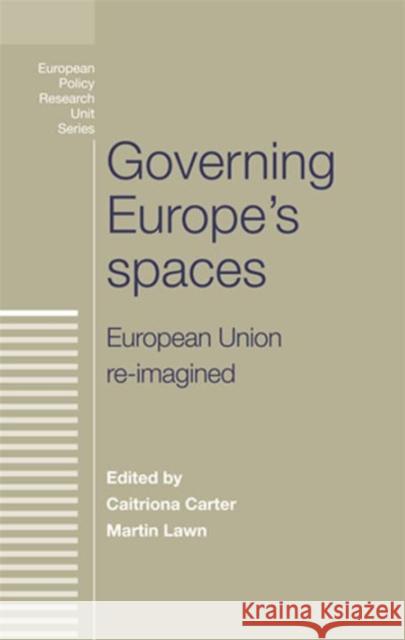Governing Europe's Spaces: European Union Re-Imagined » książka
Governing Europe's Spaces: European Union Re-Imagined
ISBN-13: 9780719091858 / Angielski / Twarda / 2015 / 216 str.
This book argues that continued theoretical debates on the EU, although important, are nonetheless camouflaging a more fundamental divide about how we can and should imagine Europe. Indeed, for a long time, EU studies has been dominated by discussions over whether the EU is supranational or intergovernmental or multi-level. This book instead asks, is Europe's reality natural or co-produced? Is Europe's creation the outcome of the actions of rational actors pursuing materially-given interests, or does it result from the public action of groups of actors whose interests are socially constructed? Are categories of territory used to analyse EU politics EU versus the Member States appropriate or should we problematise the very notion of territory in any account of European integration?
In answering these questions, the chapters of this book seek to re-imagine Europe not as an entity in Brussels, but as a simultaneously real and imagined space of action which exists only to the extent that Europeans and others act in and on it. This volume seeks to establish how those concerned with building Europe with extending and elaborating on the EU think of where they are and what they are doing.
Governing Europe's spaces presents original empirical material to capture Europeans in the process of making Europe: of performing, interpreting, modelling, referencing, consulting, measuring and de-politicising Europe. It will be of interest both to undergraduate and postgraduate students, as well as academics or practitioners who work in and on Europe, anyone who wants to look afresh at Europe and its Union and think again about its political project.











